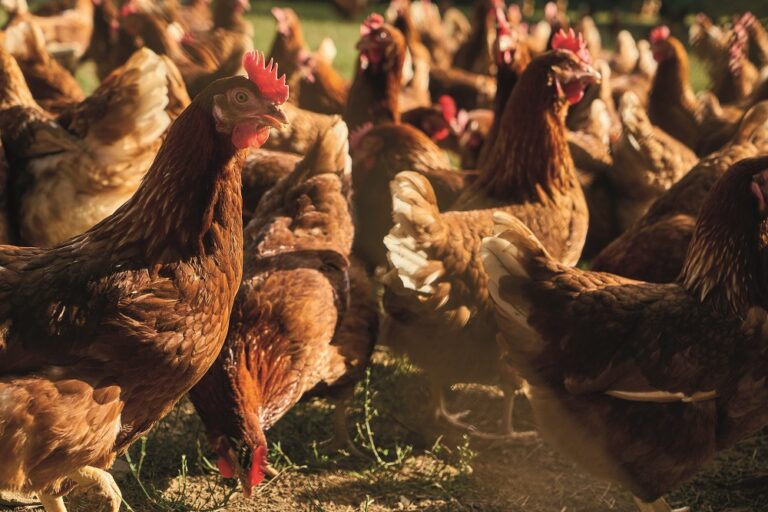The Soil Association has opened a new consultation on organic standards for laying hens and pullets, including plans to raise its maximum flock size from 2,000 to 3,000. New requirements are proposed for environmental enrichment in the hen house, along with changes to flock size and accessibility of the range area.
The Soil Association said its organic standards are based on scientific evidence and industry best practice. All standards are reviewed periodically, considering new evidence and information.
The Soil Association collaborated with a two-year multi-site trial looking at key welfare outcomes in organic laying hen flocks. The findings were then independently analysed by welfare scientists at University College Dublin and the University of Bristol – reviewing evidence gathered through intensive monitoring of 3,000 bird laying hen flocks that were managed to all other Soil Association standards, including no beak treatment.
The analysis concluded that the 3,000 bird flocks (the maximum number permitted under EU and UK organic law) performed as well as 2,000 bird flocks (maximum number permitted under current Soil Association standards) on feather loss – a key welfare outcome indicator that all Soil Association laying hen flocks are benchmarked against.
Chris Atkinson, Head of Standards and Best Practice for the Soil Association said: “The research trial confirmed that good welfare can be achieved in 3,000 bird flocks managed to our organic standards.
“This outcome suggests it is now appropriate for us to consult on bringing our flock size requirement into line with UK and EU organic requirements. The research strongly suggests that a broad package of measures, including enrichment of the housing environment and continuity of management throughout the lifetime of the birds, are key factors in helping to ensure good welfare outcomes. We are also proposing additional requirements to ensure that the full suite of measures is in place.”
John Newman, Agriculture Representative on the Soil Association Standards Board, said: “These research trials were conducted in flocks that had access to a wide range of environmental enrichment. We are now proposing to make these management practices a requirement in the Soil Association organic standards.
“In our last standards review, we introduced a requirement for environmental enrichment on the range. Ensuring that enrichment is available in the hen house too feels like the last piece of the puzzle being put in place, to further our aim of delivering the best welfare standards for laying hens.”
Enrichment
Research and farmer experience has found that a variety of inexpensive objects in the house can promote positive indoor foraging behaviour, which can reduce feather pecking in the flock. These enrichments can include hanging objects or pecking materials, alongside destructible items like netted bales that the birds can manipulate and eventually destroy. Changing these regularly to maintain novelty and making them available in the different areas of the house is necessary to promote interest and accessibility to all birds.
Flock Sizes
A review of the latest evidence suggests that the good welfare seen in Soil Association laying hens is due to a package of higher standards and best practice, but this does not include the current flock size limit of 2000 birds. Results of the recent two-year multi-site trial have shown that when environmental enrichment is provided and the rest of the Soil Association standards are met, 3,000 bird flocks can perform as well as 2,000 bird flocks on the key welfare outcome measures.
Consultation
The consultation is seeking responses to:
- Introduce a new higher standard to require enrichment in the house
- Bring the Soil Association upper flock size limit for laying hens and pullets in line with the EU and UK Organic Regulation, increasing from 2,000 to 3,000 birds
- clarify that the Soil Association requires the outdoor range to be available within a maximum distance from the house that will encourage good use of the range.


